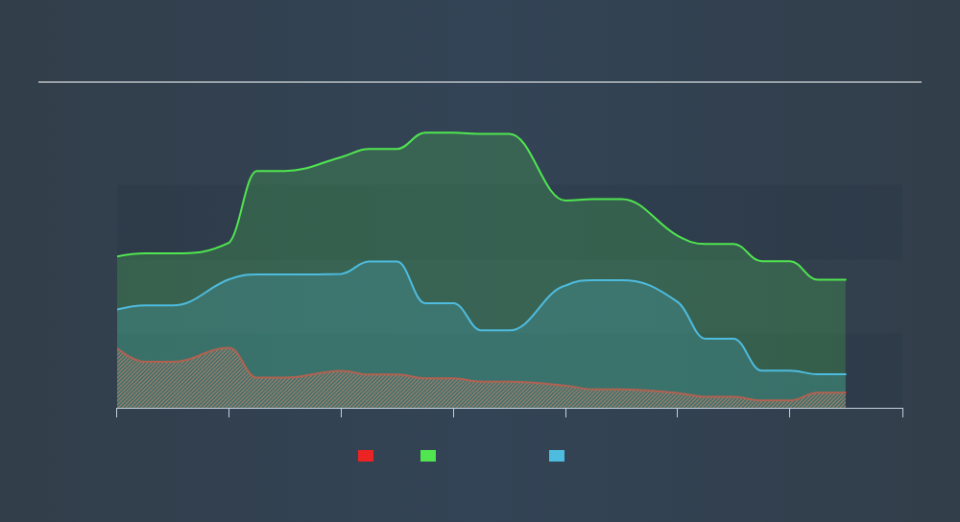Is Lamprell (LON:LAM) Using Debt Sensibly?

Warren Buffett famously said, 'Volatility is far from synonymous with risk.' So it might be obvious that you need to consider debt, when you think about how risky any given stock is, because too much debt can sink a company. As with many other companies Lamprell plc (LON:LAM) makes use of debt. But the more important question is: how much risk is that debt creating?
When Is Debt A Problem?
Debt is a tool to help businesses grow, but if a business is incapable of paying off its lenders, then it exists at their mercy. Part and parcel of capitalism is the process of 'creative destruction' where failed businesses are mercilessly liquidated by their bankers. However, a more common (but still painful) scenario is that it has to raise new equity capital at a low price, thus permanently diluting shareholders. Of course, plenty of companies use debt to fund growth, without any negative consequences. The first thing to do when considering how much debt a business uses is to look at its cash and debt together.
View our latest analysis for Lamprell
What Is Lamprell's Net Debt?
You can click the graphic below for the historical numbers, but it shows that as of June 2019 Lamprell had US$40.3m of debt, an increase on US$29.6m, over one year. However, its balance sheet shows it holds US$90.1m in cash, so it actually has US$49.8m net cash.
How Strong Is Lamprell's Balance Sheet?
Zooming in on the latest balance sheet data, we can see that Lamprell had liabilities of US$138.2m due within 12 months and liabilities of US$90.9m due beyond that. Offsetting this, it had US$90.1m in cash and US$103.6m in receivables that were due within 12 months. So its liabilities total US$35.4m more than the combination of its cash and short-term receivables.
Lamprell has a market capitalization of US$175.6m, so it could very likely raise cash to ameliorate its balance sheet, if the need arose. However, it is still worthwhile taking a close look at its ability to pay off debt. While it does have liabilities worth noting, Lamprell also has more cash than debt, so we're pretty confident it can manage its debt safely. There's no doubt that we learn most about debt from the balance sheet. But it is future earnings, more than anything, that will determine Lamprell's ability to maintain a healthy balance sheet going forward. So if you want to see what the professionals think, you might find this free report on analyst profit forecasts to be interesting.
Over 12 months, Lamprell made a loss at the EBIT level, and saw its revenue drop to US$185m, which is a fall of 49%. To be frank that doesn't bode well.
So How Risky Is Lamprell?
By their very nature companies that are losing money are more risky than those with a long history of profitability. And we do note that Lamprell had negative earnings before interest and tax (EBIT), over the last year. Indeed, in that time it burnt through US$72m of cash and made a loss of US$101m. However, it has net cash of US$49.8m, so it has a bit of time before it will need more capital. Summing up, we're a little skeptical of this one, as it seems fairly risky in the absence of free cashflow. For riskier companies like Lamprell I always like to keep an eye on whether insiders are buying or selling. So click here if you want to find out for yourself.
If, after all that, you're more interested in a fast growing company with a rock-solid balance sheet, then check out our list of net cash growth stocks without delay.
We aim to bring you long-term focused research analysis driven by fundamental data. Note that our analysis may not factor in the latest price-sensitive company announcements or qualitative material.
If you spot an error that warrants correction, please contact the editor at editorial-team@simplywallst.com. This article by Simply Wall St is general in nature. It does not constitute a recommendation to buy or sell any stock, and does not take account of your objectives, or your financial situation. Simply Wall St has no position in the stocks mentioned. Thank you for reading.

